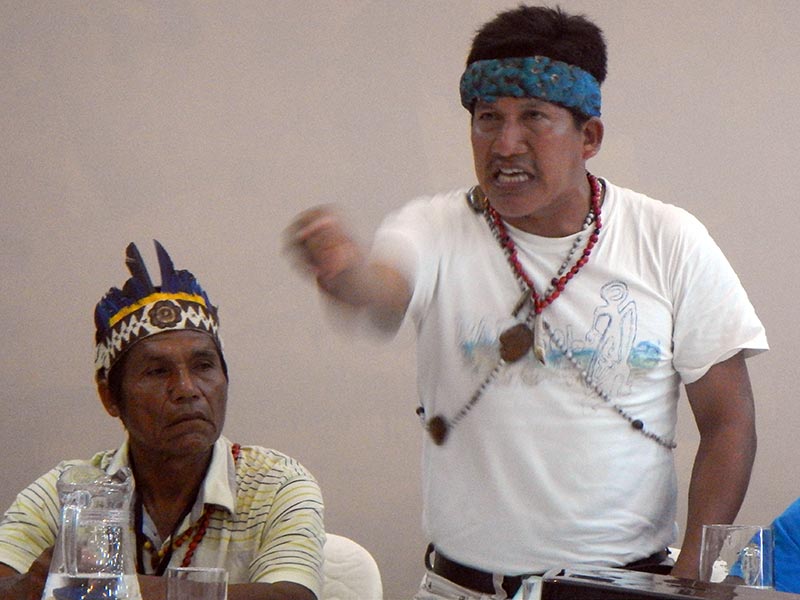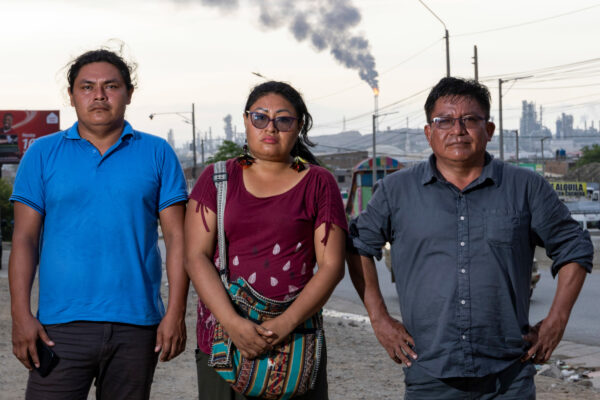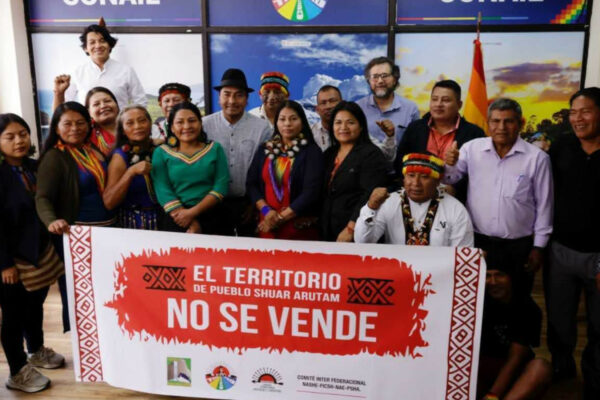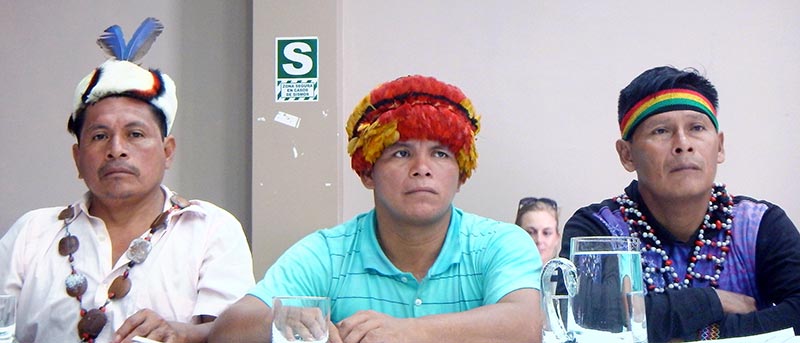
The last few days have seen the start of a process to decide the future of a territory that has been subjected to oil exploration for the last 40+ years – namely, oil block 192 (formally called 1AB) that spans three river basins (Tigre, Corrientes, Pastaza) and is home to over 100 indigenous communities. For the last 14 years the concession has been operated by largely unknown oil giant PlusPetrol Norte and prior to that, by Occidental Petroleum Corporation. Both companies have been accused of multiple violations, both environmental and social.
It’s a crucial time for this region and its people. Pluspetrol’s licence over oil block 1AB comes to an end at the end of August and the government have already started the bidding process to licence it for another 30 years in the new block 192. Whether the concession goes back to PlusPetrol or to another company is still not known. But the kichwa people of the Río Tigre are making it very clear that their rights need to be respected and their conditions met1 before other negotiations begin. In fact, on several occasions, and lately on May 22nd FECONAT – the federation that represents the kichwa people of the Tigre – announced that they no longer want PlusPetrol to stay, irrespective of whether demands are met or not. Too much damage has been done.
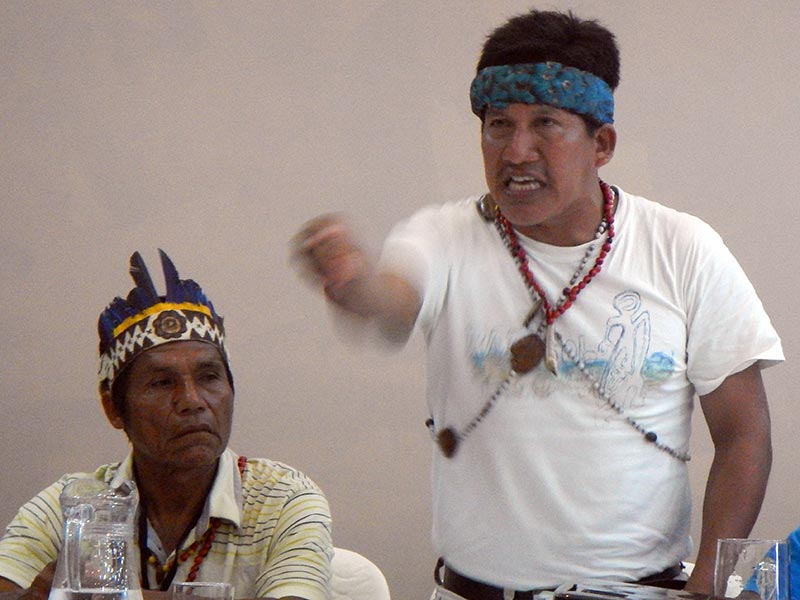
It’s important to put this meeting into context.
This was a preparatory meeting between FECONAT, PeruPetro2 and Peru’s Ministry of Energy and Mining. Other participants were the Vice ministry of Interculturality and the Presidency of the Council of Ministers. Other indigenous Federations are also being consulted at this time.
The whole consultation process will last until the end of July when final agreements will be made. This process cannot influence what company secures the next licence but it can help dictate what kind of behaviour and practice the communities expect on their territory.
What should a good consultation process look like in this context?
In the opening meeting, Apu Fernando, President of FECONAT, reminded all parties that “the process of prior consultation on the tendering of oil block 192 (formerly 1AB) must be used in order to discuss the rights we have on our territories, not to discuss the kind of property that corresponds to us.”
As FECONAT pointed out – the rights of the community must respected before the consultation starts proper. This means guarantees for their land rights and, amongst other things, the assurance that all parties must formally recognize FECONAT as the representative of kichwa people of the Río Tigre. In the past separate negotiations have been between PeruPetro, PlusPetrol and the people and this undermines the community-elected institution that is FECONAT.
What was missing from this consultation?
First of all the prior consultation (consulta previa) was not what its name denotes – namely, prior. It should have started over a year ago and as a result of this delay, we’re now in a situation where the consultation process is taking place at the same time as the re-licencing process: on 14th May, a few days before the start of the consultation, the government began the bidding rounds to sell off the oil concession to a new prospector.
Here are some of the outcomes of the preparatory meeting (May 21-23, 2015):
- Parties agreed on a high-level meeting on 4 June to find a definite solution to secure legal rights to their territories;
- Parties agreed to include an annex in the consultation plan that explicitly recognizes Feconat as the organized body that represents the Kichwa people;
- Parties agreed to include an annex in the consultation plan that states the position of the Kichwa community regarding PlusPetrol – namely, that they do not want PlusPetrol to continue operating in their territory;
- Parties agreed to include an annex in the consultation that states that at a meeting on 31 May, the Ministry of Energy and Mines (MINEM) will present PlusPetrol’s closure plan3 and their own observations. They also agreed to provide any additional information concerning PlusPetrol’s retirement from the area when their contract expires.
- Perupetro also stated that they would include all of the consultation agreements in the new contract for oil block 192 (even though the bidding process has already started and the model contract out on the international market).
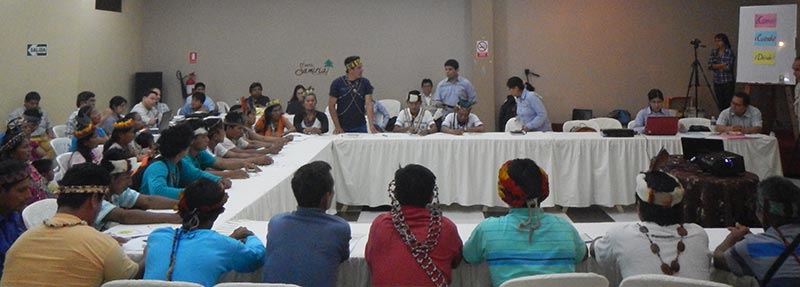
Analysis
PeruPetro pointed out that there is no law that prevents PlusPetrol from taking part in the bidding process for block oil 192. This news comes as a disappointment. But FECONAT pointed out that under the customary law of the kichwa PlusPetrol are not permitted to stay a day longer after their contract expires at the end of August.
It would be wise of the government to look at the legacy of PlusPetrol and see if they’re worth another 30 years in this region. Why give more opportunity to a company that has violated rights, left a region in a state of environmental emergency (as declared by the government itself), and contaminated rivers to the point where mercury levels are now around 300 times higher than legally permitted. And if that weren’t enough then we only need to look to PlusPetrol’s parting gift – it’s very own closure plan4. This was rejected by the government (MINEM) for failing to include almost 200 mandatory requirements5, including basics things like community participation.6
So what happens next?
There will be a meeting on 31 May with PCM (the cabinet of ministers) to initiate a dialogue between the the kichwa community and PlusPetrol about compensation and remuneration. FECONAT have demanded the presence of a representative from PlusPetrol at this meeting.
Let’s see how this one goes…
Notes:
1 The five conditions they demanded in 2012: 1) compensation for the use of their territories, 2) compensation for the damage caused to their territories 3) land-titles to prove their ownership of territories 4) social diagnostic 5) remediation of the contamination and damage to territories
2 PeruPetro acts on behalf of the Peruvian State and it is responsible for promoting, negotiating, underwriting and monitoring contracts for exploration and exploitation of hydrocarbons in Peru.
3, 4 The evaluation of the closure plan for oil block 1-AB presented by Pluspetrol Norte S.A.
5 Including the observations from ANA (the Water authority) and SERNANP (the Protected Areas authority)
6 “…no se presenta lo actuado si consideró la participación de los pobladores locales y de las comunidades nativas, en la contratación de mano de obra local” (b, p21)


